
Though greatly fluctuating in popularity throughout the decades and being wholly indebted to American iconography, values, and history, few film genres can claim to be as universally appealing, flexible, and durable as the Western. Reports of its demise have been greatly exaggerated over the decades, harkening back to its brief twilight and steady decline at the close of the studio era to its subsequent resurgences and revivals during the late-20th century.
But don’t count the Western out just yet. Films set in the Old American frontier around the 19th century have long served as a jumping board for brand-name directors like John Ford, Anthony Mann, Sergio Corbucci, Budd Boetticher, John Sturges, Sam Peckinpah, and Martin Ritt among countless others to reflect on our troubled past and ponder on the harsh realities of our uncertain present. As the following list attests, great Westerns come in all shapes and forms, from star-studded Hollywood tentpoles shot in backlot studios to dirty cheap B-movies that punch above their weight, with as many classic genre offerings responsible for codifying tropes and clichés in the first place as revisionist titles that upended them to bring a new perspective to the table.
Saddle up and scroll down below to see our picks of the greatest westerns of all time, listed in chronological order.
1. The Treasure of the Sierra Madre (1948)
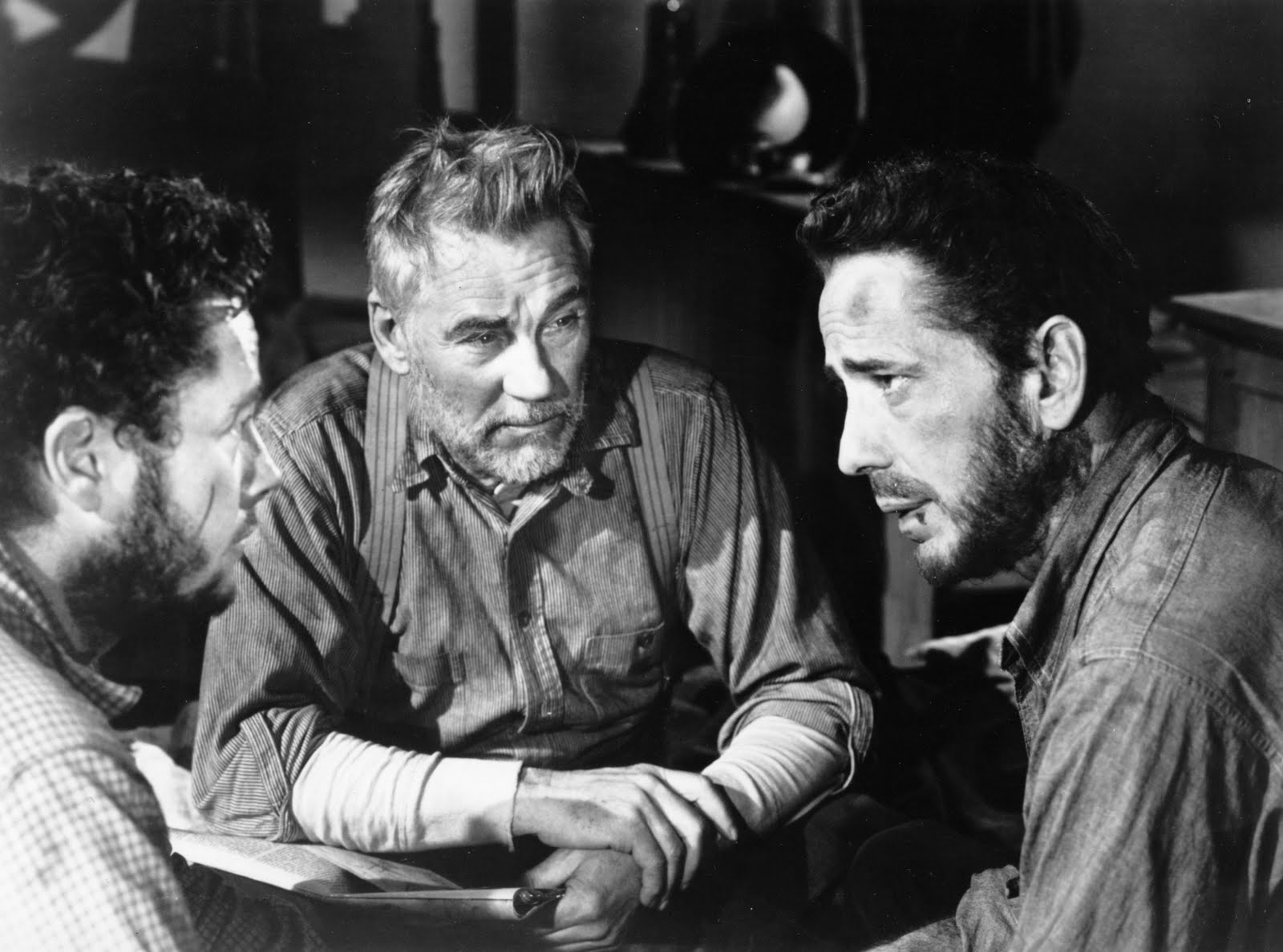
Come for John Huston’s clear-eyed indictment of the corruptive influence of greed in the human spirit, stay to watch Humphrey Bogart get down and dirty at his sweatiest and rugged best as Fred C. Dobbs, a penniless American expat living on the fringes south of the border who embarks on a treacherous journey through the heart of the Mexican mountains in search for generational wealth with the aid of his wayward buddy (Tim Holt) and a seasoned gold prospector (Walter Huston).
As we watch three wolves in sheep’s clothing gradually fall victim to their own inner demons and creeping paranoia, ready to turn on a dime, betray, and even kill each other at the blink of an eye as they fend off local bandidos and vye for the big bounty for themselves, you begin to realize just how deep “The Treasure of Sierra Madre” is prepared to burrow into the pit of human misery.
An all-timer entry in the ‘feel-bad’ movie canon, this Oscar-winning morality play based on a 1927 novel by B. Traven barely made a dent at the box office, but it has aged like fine wine and, in hindsight, Dobbs pretty much feels like the skeleton key to Humphrey Bogart’s personal canon of self-destructive anti-heroes.
2. Johnny Guitar (1954)
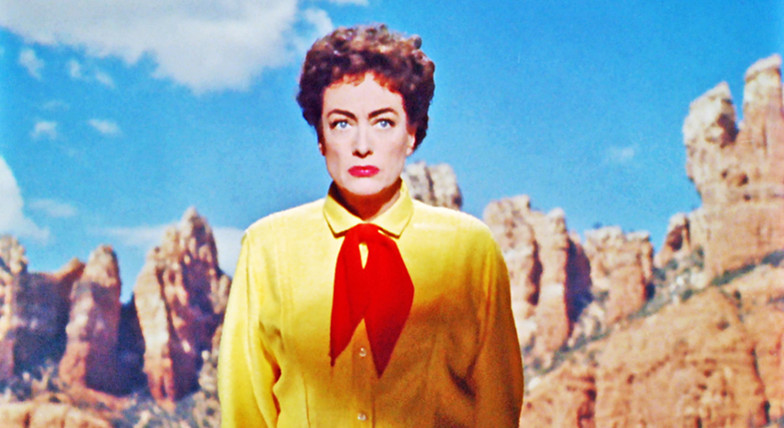
Much ink has been spilled on the profound psychoanalytical readings, radical gender reversals, and nuanced symbolism to be mined from Nicholas Ray’s unorthodox, multilayered, and bracingly feminist spin on the classical Western. Though frequently identified as a thinly-veiled allegory that barks at the industry-wide witch hunt finger pointing during the McCarthy era, it’s easy to forget that any metatextual reading of “Johnny Guitar” plays second fiddle to the inimitable Joan Crawford, who single-handedly carries the film on her shoulders as the feisty Arizona saloon owner Vienna.
Flaring tempers and old passions reignite after Vienna’s former lovebird (Sterling Hayden) unexpectedly rides into town only to be accused shortly after of bank robbing and murder by a local mob led by her bitter nemesis (Mercedes McCambridge). Caught between a rock and a hard place, Vienna has no option but to fiercely hold her ground, secretly shelter the titular gunslinger and make a valiant final stand at her saloon until his wrongdoing can be proven fair and square. As a master craftsman who earned his stripes in the dark alleys of the classic film noir, Ray proved a perfect match behind the camera to bring this nerve-racking, moody, and psychologically complex Western to life.
3. Rio Bravo (1959)
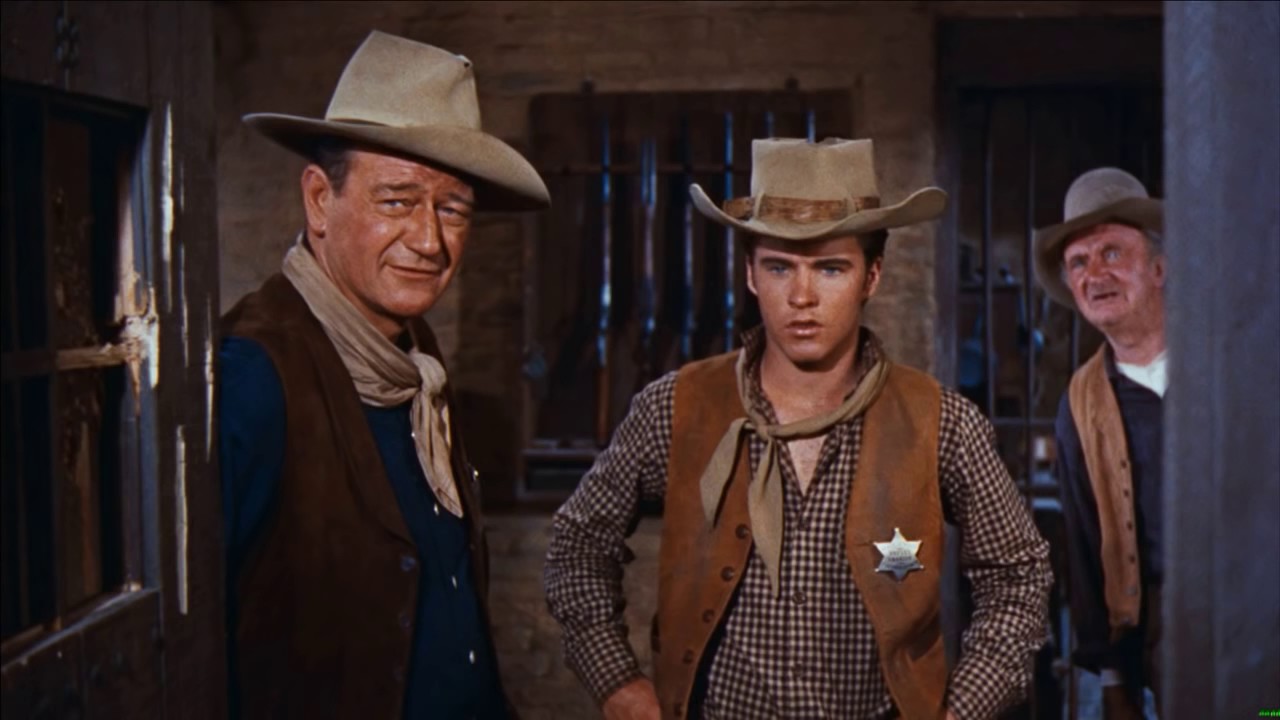
John Wayne is most likely the first name that springs to mind when discussing the annals of Western movies, and no matter how you slice it, this best-of list would feel incomplete without at least a couple of his indelible contributions to the genre cropping up. The Duke is at the height of his powers chewing up the scenery in Howard Hawks’ seminal classic as the tough-as-nails sheriff John T. Chance, who must find a way to hold out against a group of hired guns looking to forcibly break into police headquarters to free one of their murderous associates, the brother of a local tough guy, out of prison.
It’s a brilliant set-up that immediately draws the viewer in and slowly ratchets up the tension until it seeps from every frame as we watch Wayne’s motley crew of deputies including Dean Martin, Ricky Nelson, Angie Dickinson, and the always-reliable genre vet Walter Brenan try to restore law and order and safeguard the jailed man by any means necessary.
It may be a familiar yarn, but it stands to reason that Hawks would opt to rehash the story beat by beat less than a decade later in “El Dorado” following the success of this film. But it’s the priceless bantering and effortless camaraderie shared between the characters before all hell breaks loose that truly elevates “Rio Bravo” into the upper echelons of American Westerns and also makes it the kind of easy-going hangout romp that gets even better a second (or third) time around.
4. The Man Who Shot Liberty Valance (1962)
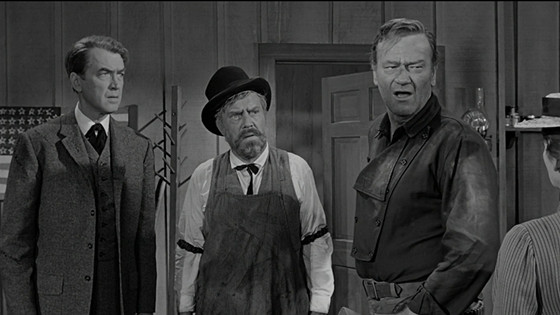
No director has cast a longer shadow over the cinematic landscape of the western than John Ford. Purists will point to “The Searchers” or even “My Darling Clementine” as the high-water mark of his illustrious career, but arguably no title in his personal catalog captures the entire breadth of his prolific directing output better than this late-career triumph starring James Stewart, John Wayne, and Lee Marvin.
“The Man Who Shot Liberty Valance” is noteworthy for a number of reasons: The 1962 film brought two proper heavyweight titans of American cinema head to head in a fierce battle of wills between opposing codes of masculinity in an increasingly civilized frontier, it capped off a formidable 23-year run by Ford kicked off with 1939s “Stagecoach” that simply remains unmatched to this day, and it represented one last hurrah for a genre on its last legs that would quickly flame out as Hollywood’s Golden Age drew to a close.
Tearing at the very fabric of American mythmaking and the slippery nature of truth, “Liberty Valance” also ticks off all the signature themes and trademark obsessions that Ford honed in throughout his career, as printed legend becomes fact, myths are created out of lies, while we gradually learn the truth behind the man who pulled the trigger and killed the eponymous outlaw.
5. The Good, the Bad and the Ugly (1966)
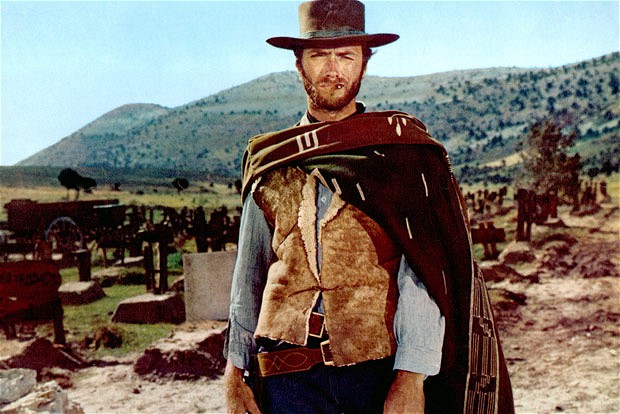
As tempting as it is to bend the rules a little in order to slip in the complete Dollars trilogy in the present slot, “The Good, the Bad and the Ugly” is head and shoulders above both of its predecessors and, hands down, the most enjoyable movie featuring Clint Eastwood’s poncho-clad nameless gunslinger.
John Ford, move away — there’s a new sheriff in town and his name is Sergio Leone. We’re only jesting of course, but there was something of a changing of the guard taking place during the mid-1960s after the so-called Spaghetti Western took off in Italy just as the popularity of the genre hit a new all-time low stateside. Meaner, leaner, and dirty cheap, this gritty new strand of Westerns stripped down the key ingredients of the genre to their bare essentials and cranked up the violence up to 11. But few could match the epic scope and elegiac tone pervading Leone’s 1966 masterpiece, starring Eastwood, Lee Van Cleef, and Eli Wallach as a trio of no-nonsense bounty hunters set on a deadly collision course as they try to locate the whereabouts of a hidden stash of money with the American Civil War raging on in the background.
There are too many iconic moments to name, but the film’s final centerpiece — a three-way Mexican standoff that simmers up the tension up to a boiling point with Morricone’s “The Ecstasy of Gold” blasting at full volume — never fails to give us the goosebumps no matter how many times we’ve seen it referenced and spoofed across media.